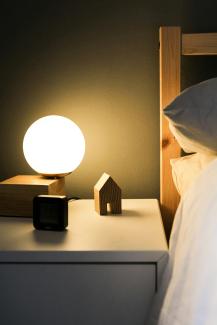
Unveiling Secrets to a Better Night's Sleep: Strategies for Enhanced Rest
In our fast-paced, always-connected world, the quest for a peaceful night's sleep has become somewhat of a Holy Grail. The quality of our slumber has profound effects on our daily functioning, emotional well-being, and overall health. Fortunately, there are actionable strategies we can adopt to pave the way for more restful nights. Let's explore some of the most effective ways to improve sleep, ensuring we wake up refreshed and ready to tackle the day ahead.
Establish a Sleep-Conducive Environment
The ambiance of your bedroom plays a pivotal role in setting the stage for quality sleep. A quiet, dark, and cool environment can significantly enhance sleep quality. Consider using blackout curtains to minimize light intrusion and earplugs or white noise machines to block out disruptive sounds. Ensuring your room temperature is slightly cool can also promote better sleep, as it mimics the body's natural drop in temperature during the night.
Stick to a Consistent Sleep Schedule
Our bodies thrive on routine, thanks to the internal circadian rhythm that regulates our sleep-wake cycle. Going to bed and waking up at the same time every day, even on weekends, can help reinforce your body's sleep-wake cycle, making it easier to fall asleep and wake up naturally. Consistency is key to syncing your biological clock and maximizing the quality of your rest.
Mind Your Diet and Exercise
What you eat and how active you are during the day can significantly impact your sleep quality. Aim to finish eating at least 2-3 hours before bedtime to avoid discomfort or disturbances. Limiting caffeine and alcohol intake, especially in the hours leading up to sleep, can also prevent sleep disruptions. Regular physical activity, meanwhile, can help you fall asleep faster and enjoy deeper sleep, though it's best to avoid vigorous exercise close to bedtime.
Embrace a Pre-Sleep Routine
Creating a relaxing pre-sleep ritual can signal to your body that it's time to wind down. This could involve activities like reading, taking a warm bath, or practicing relaxation exercises such as deep breathing or meditation. The key is to find what soothes you and make it a consistent part of your nighttime routine.
Limit Screen Time
The blue light emitted by screens on smartphones, tablets, and computers can interfere with your ability to fall asleep by disrupting the production of melatonin, the hormone that regulates sleep. Try to limit screen exposure at least an hour before bedtime, opting instead for activities that don't involve electronic devices.
Manage Stress and Anxiety
Stress and worry are common culprits behind sleepless nights. Incorporating stress-reduction techniques such as journaling, mindfulness, or talking to a therapist can improve your sleep quality by addressing the root causes of your restlessness.
Consider Your Sleep Posture
The position in which you sleep can affect your sleep quality and overall health. Experiment with different positions to find the one that feels most comfortable for you. Additionally, investing in a good quality mattress and pillow can provide the support your body needs to relax fully.
In conclusion, improving sleep is a multifaceted endeavor that requires attention to your environment, habits, and routines. By implementing these strategies, you can foster conditions conducive to restful sleep, thereby enhancing your health, mood, and productivity. Remember, small changes can make a big difference in your quest for better sleep.

